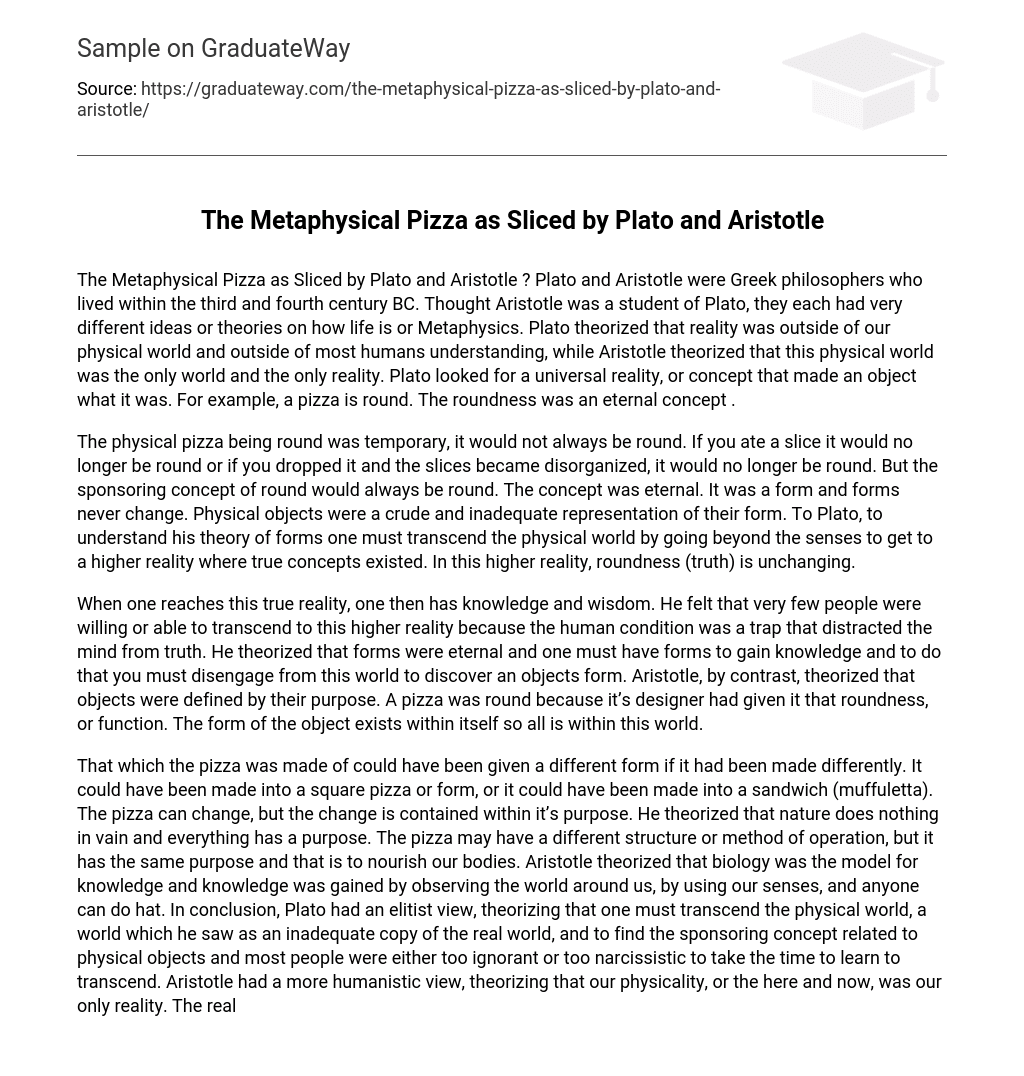Plato and Aristotle, two Greek philosophers from the third and fourth century BC, had different perspectives on life and Metaphysics. While Aristotle was a student of Plato, their theories diverged. Plato believed that reality surpassed our physical world and the understanding of most people. In contrast, Aristotle considered the physical world as the only reality. Plato aimed to find a universal concept or reality that encompassed an object’s essence. For example, he saw a pizza’s roundness as representing an eternal concept.
The temporary nature of the physical pizza being round is evident: if a slice is eaten or if it is dropped and the slices become disorganized, it no longer remains round. However, the concept behind roundness, which serves as the basis for its sponsorship, is eternal. This concept embodies the unchanging essence of roundness and persists over time. According to Plato’s theory of forms, physical objects are merely crude representations of their true forms. To fully comprehend this theory, one must rise above the sensory experiences of the physical world and venture into a higher reality where genuine concepts exist. In this higher reality, roundness (which represents truth) remains constant and unchanging.
When one attains this genuine reality, they acquire knowledge and wisdom. The individual believed that only a fraction of people possessed the willingness or capability to transcend to this elevated reality, as the human condition served as a snare that diverted the mind away from truth. The individual postulated that forms were everlasting and in order to acquire knowledge, one must possess forms. Achieving this necessitates detaching oneself from the physical realm to uncover the form of an object. In contrast, Aristotle theorized that objects were defined by their purpose. For instance, a pizza is round because its creator intended it to be round, or fulfill a particular function. The form of the object is inherent within itself, thus everything exists within this world.
The material used to make the pizza could have taken on a different shape if it had been prepared differently. It could have been transformed into a square pizza or a sandwich called muffuletta. Although the pizza can undergo changes, its purpose remains the same. According to Aristotle’s belief, nature does not do anything without reason, and everything has a purpose. The pizza might vary in structure or method, but its ultimate goal is still to provide nourishment for our bodies. Aristotle proposed that biology was the foundation of knowledge, which could be obtained by observing the world using our senses. This approach was accessible to everyone. On the other hand, Plato held an elitist perspective, suggesting that one must surpass the physical world, which he deemed as an inadequate imitation of the true reality. Plato argued that one needed to discover the underlying concept behind physical objects, an endeavor that most people were either too ignorant or too self-centered to pursue. Aristotle, on the contrary, adopted a more humanistic standpoint, asserting that our physical existence in the present moment constituted our only reality. This reality was confined to what we could perceive and touch, and all individuals were engaged in it.





